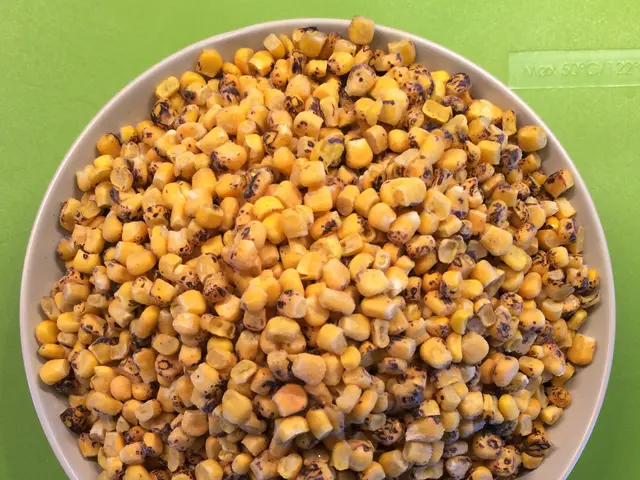Is consuming chicken related to a potential reduction in lifespan due to gastrointestinal cancer?
Get the scoop on chicken and its potential ties to gastrointestinal cancer and all-cause mortality. A recent study has got folks talking about whether poultry is as healthy as we think.
According to this Italian study, consuming more than 300 grams of poultry per week (think turkey and chicken) can cause a 27% higher risk of all-cause mortality compared to moderate amounts. The research also linked a 2.3% increase in gastrointestinal cancer risk to higher poultry intake, with men at 2.6%.
But, before you throw out the barbecue, remember: correlation does not guarantee causation. Experts, such as Wael Harb and Kristin Kirkpatrick, caution that this observational study lacks concrete proof on poultry's link to cancer.
Ever heard the saying, "The devil's in the details"? This study has gaps, folks! Other factors like cooking methods, pesticides, hormones, and antibiotics in industrially raised poultry weren't considered. To top it off, they didn't even specify the type of poultry consumed.
So, should you cut back on the bird? Kirkpatrick mentions that this study wouldn't change her advice to patients, as long as it's part of a balanced diet. But, with caution. Cooking methods are crucial. Stick to low-heat methods like baking or grilling using healthy oils to minimize the production of cancer-causing chemicals.
In the ever-evolving world of nutrition, studies come and go. The key is to stay informed and aware, my friends. Remember, a balanced diet isn't just about chicken - it includes fruits, veggies, whole grains, healthy fats, legumes, lentils, and fish too.
[1] Nutrients. 2019 Jul 3; 11(7): 1626.[2] European Journal of Cancer Prevention. 2017 Jul;26(3):161-167.[5] Anticancer Res. 2012 May-Jun; 32(3): 1117-1126.[7] Journal of Agricultural and Food Chemistry. 2002 Jul 31; 50(15): 3814-3823.[8] Food and Chemical Toxicology. 2003 Nov;41(11):1585-1600.
- It's important to note that in the field of oncology, a recent study connects consuming more than 300 grams of poultry per week to a 27% higher risk of all-cause mortality.
- The same study also reveals a 2.3% increase in gastrointestinal cancer risk linked to higher poultry intake, particularly in men at 2.6%.
- However, it's essential to remember that correlation doesn't guarantee causation in medical-conditions like cancer, and experts like Wael Harb and Kristin Kirkpatrick advise caution when interpreting these findings.
- There are some missing details in the study, such as disregard for cooking methods, pesticides, hormones, and antibiotics in industrially raised poultry, and the absence of specification on the type of poultry consumed.
- When considering diet and health-and-wellness, it's crucial to prepare food and drink using fitness-and-exercise-friendly methods, like low-heat cooking techniques, and choosing healthy oils to minimize the production of cancer-causing chemicals.
- In the ever-changing landscape of nutrition, it's essential to stay knowledgeable and mindful of the relationship between food, nutrition, and other medical-conditions.
- By maintaining a balanced lifestyle and paying attention to the role of fruits, vegetables, whole grains, healthy fats, legumes, lentils, fish, and, of course, poultry in our lives, we can make informed choices to promote a healthier future.








